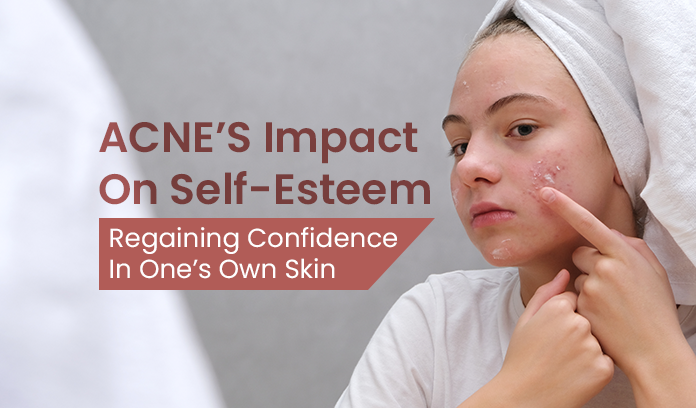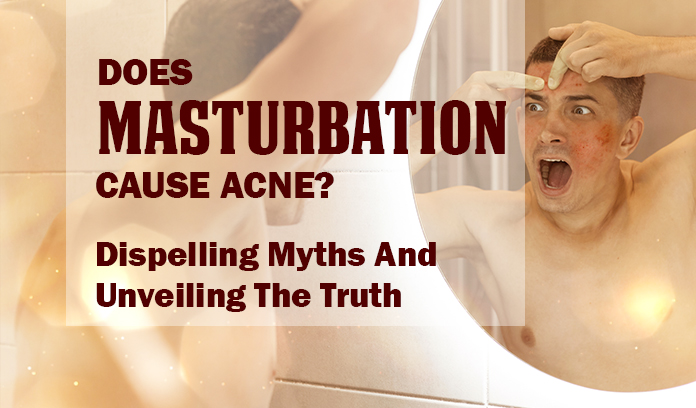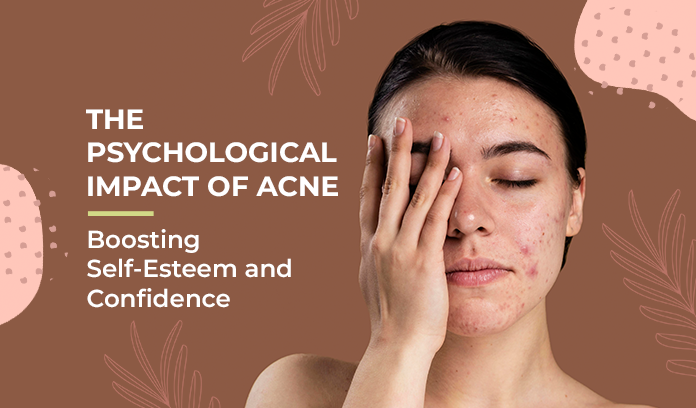Acne and self-esteem are profound, especially considering societal beauty standards and the relentless pursuit of flawless skin.
In this article, we explore the intricate relationship between acne and self-esteem, shedding light on psychological effects, coping mechanisms, personal stories, and the societal narrative surrounding acne.
Characterized by the onset of papules, cysts, and pimples, acne affects individuals of all ages and groups. Beyond its physical manifestations, acne often takes a toll on one’s emotional well-being, contributing to a range of psychological challenges.
The Psychological Effects of Acne
Acne and self-esteem are closely tied to its being a fairly noticeable condition, influencing how individuals perceive themselves and how they believe others see them.
The fear of judgment and social scrutiny can lead to increased anxiety, prompting individuals to withdraw from social activities and interactions.
Acne can strain one’s relationship with one’s body, fostering negative perceptions that may impact overall self-image.
Factors Contributing to Acne-related Self-Esteem Issues
The Media’s portrayal of flawless skin sets unrealistic expectations, fostering feelings of inadequacy among those struggling with acne.
Peer pressure and societal judgment further compound self-esteem issues, making it challenging for individuals to embrace their authenticity.
Coping Mechanisms
Establishing a daily skincare ritual not only aids in managing acne but also provides a sense of control and empowerment.
Seeking professional help, such as dermatologists or counselors, can offer valuable guidance in navigating the emotional impact of acne.
Joining support groups and online communities allows individuals to share experiences, find encouragement, and build a sense of community.
Breaking Down Acne Myths
Dispelling common myths surrounding acne is crucial in reducing stigma and fostering a more informed and compassionate understanding of the condition.
By debunking misconceptions, we aim to reduce the stigma associated with acne, encouraging open conversations and empathy.
Promoting self-acceptance involves embracing imperfections and understanding that beauty comes in diverse forms.
Practical Tips for Managing Acne
Tailoring a skincare routine to acne-prone skin can significantly improve skin health and contribute to a positive self-image.
Incorporating lifestyle changes, such as a balanced diet and stress management, plays a crucial role in managing and preventing acne.
Consulting with dermatologists ensures personalized guidance for effective acne management.
Addressing Acne and Self-Esteem In Different Age Groups
Understanding the unique challenges teenagers face with acne helps provide targeted support during this crucial developmental stage.
Exploring the challenges adults encounter with acne sheds light on the emotional and psychological impact specific to this age group.
Late-onset acne in seniors requires a nuanced approach, considering both physical and emotional well-being.
The Link Between Mental Health and Acne
Encouraging individuals to seek professional help for mental health concerns ensures comprehensive support for those dealing with acne-related challenges.
Adopting holistic approaches, such as mindfulness and stress reduction techniques, can positively impact mental well-being in the context of acne.
Future Trends In Acne Awareness
As societal perspectives evolve, there is a growing understanding and acceptance of skin imperfections, reducing the stigma associated with acne. Ongoing advancements in acne treatments offer hope for improved outcomes and increased awareness about effective solutions.
Most importantly, changes in the skincare and beauty industry reflect a shift towards authenticity and inclusivity, challenging traditional norms and embracing diversity.
FAQs Related To Acne and Self-Esteem
-
Can acne be completely cured?
While complete cure varies from person to person and skin type, effective treatment options do help improve the condition.
-
How can I boost my self-esteem while dealing with acne?
Building self-esteem involves a combination of self-care, support systems, and embracing one’s idiosyncrasies beyond physical appearance.
-
Are there effective natural remedies for treating acne?
Natural remedies, such as tea tree oil and aloe vera, may help manage acne, but individual responses can vary.
-
Does diet play a role in acne development?
Diet can determine skin health; adopting a balanced and nutritious diet may contribute to clearer-looking skin.
-
What can I do if my acne is affecting my mental health?
Seeking professional help, talking to friends and family, and embracing mental health practices are helpful steps when it comes to dealing with acne and self-esteem.











